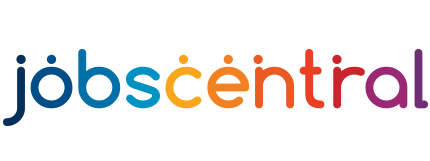
One way to
differentiate scholarships is by local or overseas. Another important
difference is the kind of scholarship provider.
Do you want to
join a government ministry and help advance a local mission? Or do you feel
you’re more suited to the fast-paced, ever-changing corporate landscape? A
clear answer to those questions will help you narrow down which scholarships
you want to apply for.
So what are
some key differences between the two sectors? We outline a few, and the impacts
they may have on a potential scholar’s decision.
Organisational Purpose
Generally, a
government organisation has a far-reaching long term purpose, which may be
constantly evolving to serve different population needs. For example, a mission
such as “maintaining peace and prosperity” may have many different facets, and
hence require many different people to work toward it.
Also, organisation
members may be more motivated by working for a cause than a salary. As Pearlynn Sim, recipient of the NParks Undergraduate
Scholarship, said: “It was
the only scholarship that I applied for, as I was certain that I wanted to be
part of NParks to help better the lives of fellow Singaporeans by developing
and managing quality parks.”
In contrast, a
private company tends to be profit-driven. This can translate into competitive
employee benefits and relevant industry experience at the forefront of a
particular sector. Lim Jun Ji, Sembcorp Scholar, listed three reasons
for accepting their scholarship: job security, multifaceted learning
opportunities, and an unchanging core business relevant to his interests – all
characteristic of the company-sponsored scholarship.
Job Rotations
Government
ministries are known for rotating their scholars through various partners and
attachments, sometimes even to other ministries. This is to give them a larger
perspective of the workings of the organisation, and in some instances as a
fast-track to management.
For example, Faustina Lim, MCI Scholar, was rotated from MCI to
MOH and back during her career, as well as being rotated to different divisions
within MCI itself. In contrast, Shek Khi Huin, GIC Scholar, described being thrust
into decision-making responsibilities of higher and higher level, but did not
move from his original portfolio of work.
However, a
scholar’s role will always be defined by the organisation’s purpose, and all
the job rotations will centre around that.
Work Culture
Driven by
profit, companies are free to adopt a leaner, more driven working style. Often,
they are described as “fast-paced” and “dynamic”, with ever-changing business
practices to suit an ever-changing world.
A common
conception is that companies are not bound by bureaucratic red tape, so work
gets done faster. They also can offer a wider range of employee perks from
learning trips to exclusive memberships and invites.
On the other
hand, a government organisation may have more leeway in deadlines and projects
as it works towards its mission. Given that there are resources aplenty,
workers need not scramble to cut costs in projects or worry about working with
a tight budget. Employee benefits may also include facility memberships and
passes to nation-wide events to promote work-life balance.
In the end, a
scholarship is more than a bunch of comparisons between public or private,
local or overseas. It is about what fits the individual best. While public
versus private scholarships do differ in several ways, these differences are
only as important as how much they affect your choice of sponsoring
organisation.
Weigh your
options with an informed mind, and choose well.
Technology
photo created by pressfoto - www.freepik.com



